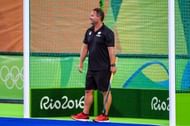Flanked by beaches and valleys, Donghae, is the Korean port city which will play host to the fifth edition of the Women's Asian Champions Trophy. The tournament returns to Korea where it began eight years ago with Busan hosting the inaugural edition. Hosts South Korea won the first edition and the second which was held in China. Japan struck gold as hosts in 2013.
After a three-year gap, the tournament was held in 2016 in Singapore and a resurgent Indian side, coached by Neil Hawgood, showed their class by emerging victors after having won silver in 2013. India followed up this triumph by winning the Asia Cup and are now the undisputed champions of Asia.
The Indian girls are high on confidence following a good show at the Commonwealth Games and as they prepare for the upcoming World Cup and Asian Games, will look to plug the gaps and iron out deficiencies prior to a vital season ahead.
India will open their campaign against Japan against whom the defending champions have had a mixed record of late.
Two years since Rio, India climb up the ladder while Japan slip
India and Japan were placed in the same group in the Rio Olympics a couple of years back.
A nervous Indian side took on Japan in their opening encounter and enjoyed a fair share of the possession but was unable to find the back of the net. Japan took a while to get their act together but struck the woodwork twice and went into the long breather with a two-goal lead.
The Indian girls were not to be undone and came back strongly with Rani Rampal reducing the deficit and Lilima Minz equalizing. The draw was considered to be a huge achievement for the Indian side considering the fact they had qualified for the Olympics after a hiatus of 36 long years.
A lot has changed since then, however, as the Indians have marched ahead ominously while Japan has failed to keep up the momentum. In Rio, the Japanese girls were ranked 10th and India 13th.
Nicknamed "Sakura Japan", the woman's team is now ranked 12th, a couple of notches below India in the FIH rankings. The Japanese side is coached by Australian Anthony Farry who was previously in charge of the Canadian men.
Anthony Farry: Does the name ring a bell for the Indian's men's team?
Anthony Farry has been credited with rejuvenating the Canadian men's team and helping them qualify for the Rio Olympics. He ensured that Canada did not just qualify, but competed strongly as well as many Indian hockey fans will recall.

The Indian men's team are well aware of what Anthony Farry is capable of. In a crucial encounter of the 2016 Rio Olympics, India was held 2-2 by unfancied Canada and as a result, was faced with the daunting prospect of meeting Australia in the last eight. Contrary to expectations, Belgium topped Group A by beating Australia, which raised India's hopes of progressing, but the joy was short-lived as the Indians lost to the Red Lions in the quarter-final.
How have the Indian women fared against Japan of late?
India had lost to Japan 2-0 in the Hockey World League semifinal in July last year. The Japanese defence held firm even as the Indians created numerous chances but failed to score. Japan had also defeated India to claim gold in the final of the Asian Champions Trophy in 2013.
Eventual champions India were held to a 2-2 draw by Japan in the last edition of the Asian Champions Trophy as well and are well aware that the Japanese are a side that can pose serious problems for India in their quest for a second goal. What's more, the Japanese girls defeated mighty China as well in Singapore which proves beyond doubt that they are a force to reckon with.
India will take heart from the fact that they demolished defending champions and hosts Japan in the Asia Cup semifinal last November. Gurjit Kaur was at her peak and scored a brace while Navjot Kaur and young Lalremsiani scored one goal apiece for India. Shiho Tsuji and Yui Ishibashi found the net for Japan but it was India who progressed to the final to conquer Asia while the Japanese lost to Korea in the bronze medal match.
The Japanese side is a good blend of youth and experience. Defender Mayumi Ono, midfielder Yukari Mano, and forwards Minami Shinizu, and Motomi Kawamura have all represented the side at Rio. Eighteen-year-old forward Shiho Kobayakawa is the youngest member of the Anthony Farry's side.
A good start against Japan will do wonders for the confidence of Sjoerd Marijne's team and a great contest is on the cards on Sunday.
The Japanese Team for the Asian Champions Trophy
Head Coach: Anthony Farry
Goalkeepers: Akiko Tanaka and Erika Akaya
Defenders: Kana Nomura, Mayumi Ono, Mami Ichitani, Miki Kitsunezuka, Izuki Tanaka,
Midfielders: Natsuha Matsumoto, Marina Yagi, Yukari Mano, Yui Nishinaga, Yui Ishibashi, Naho Ichitani
Forwards: Shiho Tsujii, Aki Yamada, Minami Shimizu, Motomi Kawamura, Shiho Kobayakawa.
The Indian Team for the Asian Champions Trophy
Head Coach: Sjoerd Marijne
Goalkeepers: Savita Punia, Swati
Defenders: Deepika Thakur, Sunita Lakra, Deep Grace Ekka, Gurjit Kaur, Suman Devi Thoudam
Midfielders: Monika, Namita Toppo, Nikki Pradhan, Neha Goyal, Lilima Minz, Navjot Kaur, Udita
Forwards: Vandana Katariya, Lalremsiami, Navneet Kaur, Anupa Barla
